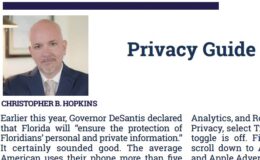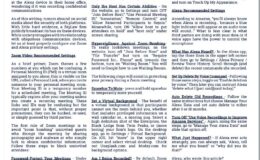
Corey Smiley was at someone else’s home with an invitation when the discussion turned argumentative, and the other person “began recording the argument on her cell phone… position[ing] the phone in front of Smiley’s face… Smiley questions her about the recording and grabs the phone…” He later was arrested and then convicted of several crimes. He moved to suppress the video on the grounds that he did not give express consent to be recorded. Did he win?
The Florida Wiretap Act (Florida Statutes 934.03) creates a lot of confusion however this case, both by statute and common sense, resolves without much surprise.
Florida is a two-party consent state as it relates to recordings. When a person has BOTH a subjective and reasonable expectation of privacy, the person’s oral statements are protected. As the court noted, “Smiley needed to show that he had a subjective expectation of privacy in his statements AND that his expectation is one society would accept as reasonable.”
Based upon the video, “Smiley did not have a reasonable expectation of privacy in his statements when he saw the cell phone in the victim’s hand and knew he was being recorded.”
Also based upon the video, while Smiley was originally invited into the home (where he might have enjoyed a reasonable expectation of privacy), he was asked to leave nine times. “At that point, Smiley’s expectation of privacy, if any, was not longer reasonable or justified.”
The answer is no, his statements were not protected nor were they suppressed from evidence. The case is Corey Smiley v. Florida.
Do you have questions about “secret” video or audio recordings in Florida? Be sure to consult with a lawyer licensed in your jurisdiction who has experience in the relevant criminal, evidentiary, and civil issues relating to one or two party recordings.


